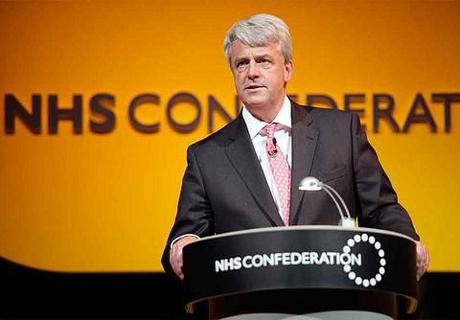
Health Secretary Andrew Lansley. Photo credit: NHS Confederation http://flic.kr/p/a1Hcud
The UK government’s “nudge” approach to the country’s health has come under fire from critics who claim that it’s jut not working.
Influenced by popular science book Nudge: Improving Decisions about Health, Wealth and Happiness by Richard Thaler and Cass Sunstein, the Coalition established a Cabinet behavioural science insights team in 2010 to look into applying the theory to the delivery of government policy. The idea behind the “nudge” is that people respond better to persuasion than to direct orders – and this has been applied to a range of policies, from tax to health. Health Secretary Andrew Lansley declared last year: “It is time for politicians to stop telling people to make health choices, time for them to start helping them to do it. We are not nannying, but nudging.”
However, a recent report from a House of Lords sub-committee appears to cast doubt on the efficacy of nudging. Is a gentle nudge enough to get us to stop smoking and start exercising, or are more direct measures needed?
“We are not nannying, but nudging,” said Health Secretary Andrew Lansley.
- Legislation and regulation. Writing on the BBC website, Baroness Julia Neuberger, chair of the select committee, argued that nudging alone is not enough. Neuberger criticised the government’s policy of encouraging businesses to take steps to combat health issues through voluntary agreements: instead, she suggested regulation would be more effective, such as compelling companies to put nutritional information on all food products to combat obesity. She also said there was a need for legislation: “The move to introduce higher alcohol pricing is a good example of how legislation can be used to change our behaviour by changing our environment.”
- Missed opportunity. Writing in The Guardian, Jonathan Rowson felt that the sub-committee report didn’t go far enough in its exploration of the benefits - or otherwise – of nudging. “What the Neuberger report failed to emphasise was that the deepest problem with nudge is that it is not transformative. Indeed, darkly, this may be why it is so popular. Nudge changes the environment in such a way that people change their behaviour – but it doesn’t change people at any deeper level in terms of attitudes, values, motivations, and so on,” he wrote. Rowson also argued that there has not been sufficient research into other areas of behavioural science that may have an impact on the “nudge” concept, and that the report should have addressed this point.
“The Prime Minister’s vanity project,” declared Luciana Berger.
- Waste of money. Labour MP Luciana Berger called the behavioural science team “the Prime Minister’s vanity project”. Berger questioned the “extravagance” of having such a unit as it emerged that travel expenses for the unit amount to £8,198 since September 2010.
“The ideas have come out of the lab into the world. They work. Let’s use them.” The Times.
- Nudging works. In The Times, Daniel Finkelstein was rather more open to the benefits of the nudge – and argued that the behavioural science unit could save money in the long term. He pointed to changes made to the late-payment tax letters: “It turned out that telling debtors that they were unusual — others in their town paid on time — significantly increased payment. Indeed the team believes that they will be able to use this to save £7.75 million in administrative costs and increase tax revenue cash flow by as much as £280 million.” Finkelstein also maintained that the team could generate improvements to the number of people on the organ donor register and in terms of automatic pension enrolment. “The ideas have come out of the lab into the world. They work. Let’s use them,” he wrote.
More on health
- Amy Winehouse’s addiction
- Sunburn pain explained
- Should fat kids go into care?

